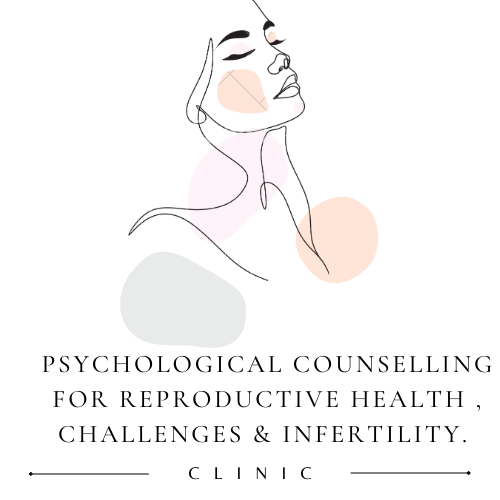
Understanding Postpartum Care & Counselling
Pregnancy changes a body in more ways than you might expect. And that doesn't stop when you give birth. Healing well physically, socially and emotionally after delivery is crucially important.
What is postpartum care?
Postpartum care is the care of the mother and the baby after childbirth, which lasts for about six to 8 weeks or more in some cases.
Postpartum psychiatric disorders are a serious concern affecting many women, globally. These disorders can have a significant impact on the mental health and well-being of new mothers, as well as their families. It is crucial to understand the prevalence of these disorders and the various treatment options available to support affected individuals.
Best practice (ACOG) now recommends that “now recommends that postpartum care should be an ongoing process, rather than a single encounter and that all women have contact with their ob-gyns or other obstetric care providers within the first three weeks postpartum. Timely follow-up is particularly important for women with chronic medical conditions.”
At PCRH, we abide by best practice guideline for you and your family.

Things to talk to your physician at pregnancy-checkups and visits with your physician include both physical as well as psychological such as:
- Your mood and emotional well-being.
- How well you're sleeping.
- Other symptoms you might have, such as tiredness.
- Birth control and birth spacing.
- Baby care and feeding.
- When you can start having intimate activity again.
- What you can do about any pain that you have.
- How you're adjusting to life with a new baby.

Special issues: What are Postpartum Psychiatric Disorders ?
Postpartum psychiatric disorders are more common than many people realize. Approximately 1 in 7 women may suffer from some form of postpartum psychiatric disorder. This includes conditions such as postpartum depression, psychosis, postpartum anxiety, postpartum psychosis, trauma, phobias, attachment issues, PTSD and postpartum obsessive-compulsive disorder.
Risk factors and causes of postpartum psychiatric disorders
Several risk factors increase the likelihood of developing postpartum psychiatric disorders. These include a personal or family history of mental health conditions, a lack of social support, a difficult or traumatic childbirth experience, and hormonal changes during pregnancy and after delivery. Other factors, such as sleep deprivation, financial stress, and a history of substance abuse, can also contribute to the development of these disorders.
Signs and symptoms of postpartum psychiatric disorders
Recognizing the signs and symptoms of postpartum psychiatric disorders is essential for early intervention and treatment. Common symptoms include persistent feelings of sadness or anxiety, disinterest in self/baby, anger, fear, nightmares, changes in appetite and sleep patterns, difficulty bonding with the baby, irritability, and thoughts of self-harm or harming the baby. It is essential for healthcare professionals and loved ones to be vigilant and supportive in identifying these symptoms and seeking appropriate help.
Impact of postpartum psychiatric disorders on mothers and families
Postpartum psychiatric disorders can have far-reaching effects on both the mother and her family members. The emotional and psychological toll can be immense, leading to strained relationships, difficulty in parenting, and a decreased quality of life for everyone involved. It is crucial to address these disorders promptly to prevent long-term negative consequences.
Treatment options for postpartum psychiatric disorders at PCRH
Fortunately, treatment options for postpartum psychiatric disorders are available and can significantly improve the well-being of affected individuals.
Psychotherapy, such as cognitive-behavioural therapy (CBT/Mindfulness based therapies), are often recommended as a first-line treatment. This type of therapy helps individuals identify and modify negative thought patterns and behaviours. Medications, such as antidepressants or anti-anxiety medications, may also be prescribed in more severe cases. Additionally, couple counselling, family interventions, support groups and counselling can provide valuable emotional support and coping strategies.
Treatment options for postpartum psychiatric disorders
Fortunately, treatment options for postpartum psychiatric disorders are available and can significantly improve the well-being of affected individuals.
Psychotherapy, such as cognitive-behavioral therapy (CBT/Mindfulness based therapies), are often recommended as a first-line treatment. This type of therapy helps individuals identify and modify negative thought patterns and behaviors. Medications, such as antidepressants or anti-anxiety medications, may also be prescribed in more severe cases. Additionally, support groups and counseling can provide valuable emotional support and coping strategies.
The role of healthcare professionals in diagnosing and treating postpartum psychiatric disorders
Healthcare professionals play a vital role in diagnosing and treating postpartum psychiatric disorders. Obstetricians, midwives, and primary care physicians should be vigilant in screening for these disorders during prenatal and postpartum visits. Timely identification and intervention can significantly improve outcomes for affected individuals.
Healthcare professionals should also provide education and support to families, ensuring they understand the nature of these disorders and how to support their loved ones.
Postpartum Psychological Issues & Early help with PCRH

Post partum disorders have a profound impact on the lives of affected individuals and their families. Mothers with postpartum psychiatric disorders should not feel alone in their struggles. It is crucial for affected individuals to reach out and seek the help they need.
It is crucial to also raise awareness about these disorders to ensure early detection, appropriate treatment, and support for those in need.
Our team of specialists can help you in understanding the prevalence, types, risk factors, and treatment options for postpartum psychiatric disorders, we can work towards a society that prioritizes the mental health and well-being of new mothers. Together, we help create a positive difference in the lives of many.
Expert Talks
Post pregnancy mental health help: Quick Myths and Facts by Dr Ansha Patel
Client Feedbacks
A very informative experience that too in a crisp and brief form. Really appreciate it.
Thank you for the insightful session @ Dr Ansha Patel and Vani Taneja.
Dear Dr Taneja and Team, thank you so much for a wonderful webinar on Psychological Adaptations in Pregnancy. This was a much needed topic given the rising rates of reproductive crises globally; it was wonderful to see this local effort to account for the same. The topic at hand is not easy and unless more professionals speak clearly and factually about the data, there is not much that other professionals and non-professionals can do to help alleviate the burden of the same! Kudos!
Resources
- Postpartum: Stages, Symptoms & Recovery Time (clevelandclinic.org)
- ACOG Redesigns Postpartum Care | ACOG
- World Health Organization. Maternal mental health. www.who.int.
- National Institute for Health and Care Excellence . Antenatal and postnatal mental health: clinical management and service guidance. London: National Institute for Health and Care Excellence, 2014.
